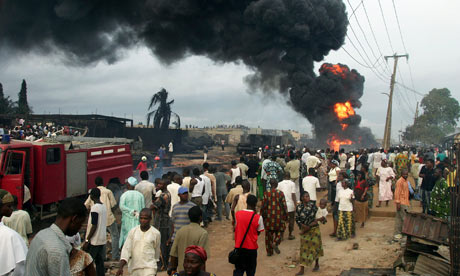Soil Fertility – Paradigm shift through collective action
Author: Dr. André Bationo, Director, AGRA West Africa & Senior Programme Officer, Soil Health Program (Research & Extension)
Date: 25/09/2009
Introduction
Studies of land degradation have proven that the sub-Saharan countries have the highest rate of nutrient exhaustion. This is the basic cause of the decrease in per capita food production in Africa. In developed countries, environmental contamination is caused by over application of fertilizers. While in sub-Saharan countries, environmental contamination is as a result of insufficient nutrients application, poor soil management, harsh climatic conditions etc. Studies of fertilizer now show that there is a decrease in fertilizer use in Africa because of low returns due to agro-climatic conditions and current farming methods and because of the lack of information about fertilizers by farmers, retailers and agents. High costs of fertilizers due to foreign production, large units, and costly transport and inconsistent and adverse policy environment such as shifting government and donor subsidy policies usually undermine private investment.
Paradigm Shifts in Soil Fertility Management
A lot of African soil is derived from granite through millennia of weathering. Soils have low response when fertilizer is applied alone. During the 1960s and 1970s, there was the first paradigm shift. This involved the use of external inputs, be it fertilizers, lime, or irrigation water. It was seen as better for crop production. This method worked effectively in Asia and Latin America. However, in the sub Saharan countries it was less effective because of diversity of the agro-ecologies and cropping systems, variability in fertility, weak institutional arrangements, and lack of enabling policy etc In the 1980s, organic resources were believed to enable sustainable agricultural production. This brought about the second paradigm involving soil fertility management.
Lessons from Long-Term Experiments Large-scale farmers in Kenya, Zambia and Zimbabwe who have been able to sustain high cereal yields recognized the positive crop yield when fertilizer is being added. However, if mineral fertilizer is added alone, yields may decline. For better and sustained crop production, and combined addition of organic inputs and mineral fertilizer is needed.
Way forward
To move forward, Investment is a vital part in ensuring higher yields. It is also important for both public and private systems to empower farmers. Transportation costs are high, domestic production is low and there are few dealers. Country specific strategies can be used to help. There should be support for private firms, as well as subsidies to encourage production. This would lower production costs, provide services to make them venture out. Countries like Malawi, Nigeria, and Afghanistan have proved that this method is successful.
Global Initiatives on Soil Fertility in Africa
In order for Africa to achieve its Green revolution, soil fertility issues have to be thoroughly looked into. Between 1996 and 2001, several steps and plans were made towards soil fertility improvement. Every individual has a part to play towards this. However, collective responsibility is vital.














